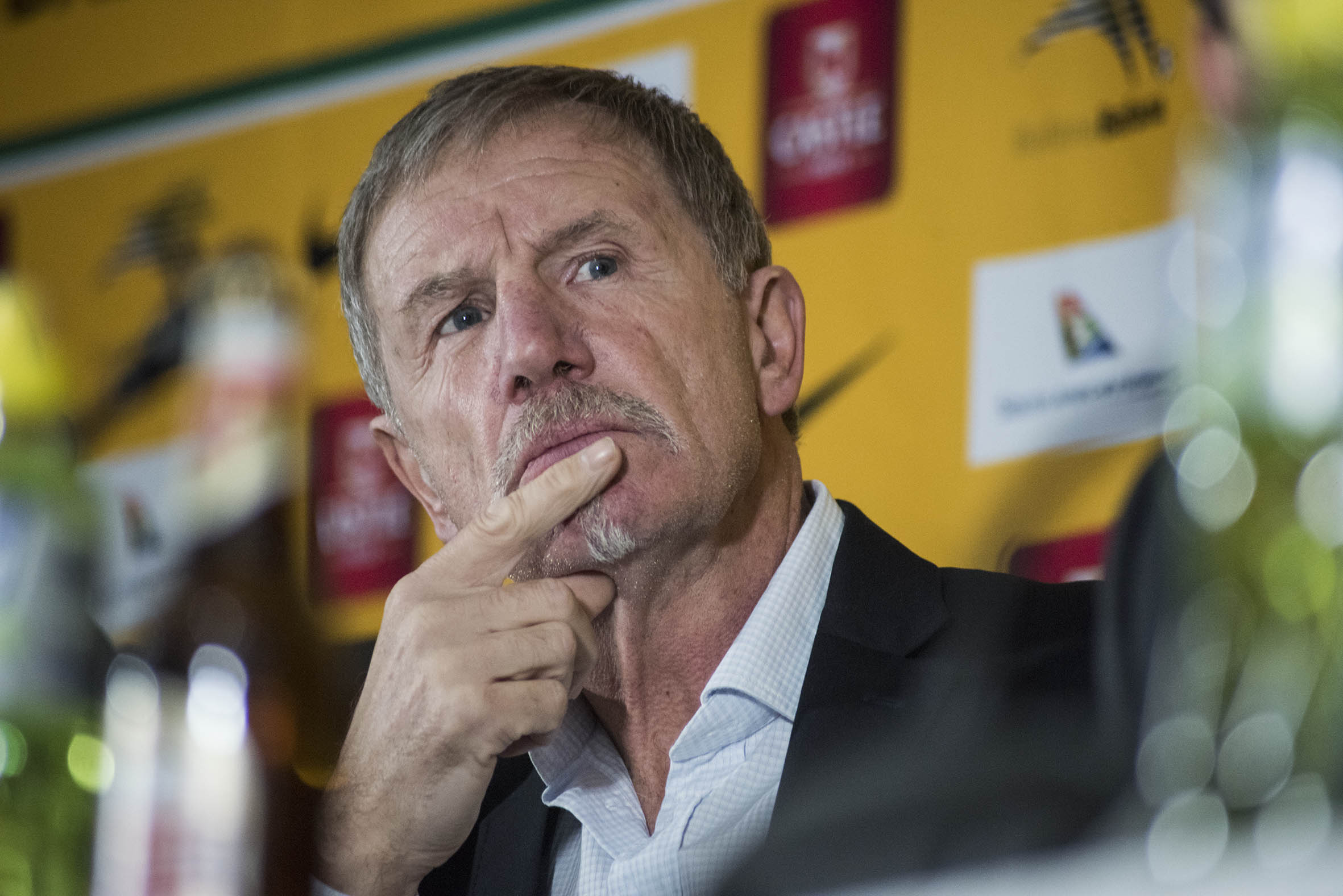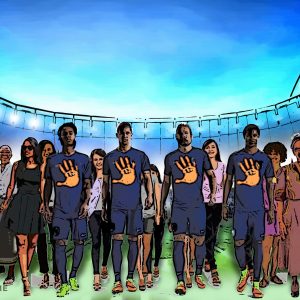Sport has a rape culture problem
Like racial abuse, the ingrained use of rape as sporting terminology is unacceptable and all those involved in sport need to stop condoning such language.
Author:
5 February 2021

Sport has a rape problem. The use of rape as a metaphor by supporters and pundits has become second nature in sporting circles when discussing big wins.
Some supporters on Twitter – and other social media platforms – don’t explicitly use the word rape but the framing of their posts suggests it, forming part of the rape culture of our world. Screenshots of porn, especially those of a group of men about to have sex with one woman, can be found all over the social media platform, posted by boastful supporters after their team’s win.
Rape isn’t only used as a metaphor on social media, it’s also used as a tool to silence and threaten women. The use of rape as a metaphor is disturbing on many levels. It glorifies the act, turning a horrifying ordeal and profound violation into a celebration of sporting excellence. By comparing a win to rape, the aggressor (the winning team) becomes the “hero”, someone to be worshipped and celebrated. Such language is disturbing in a country with a systemic rape crisis, where many victims don’t report being raped because the justice system continually lets them down. Many rapists are roaming the streets freely.
We need to pay attention to every aspect of rape culture, including the language that has become commonplace in our society. “There is a lot of linguistic evidence to suggest that the way we talk about social situations can reflect how we think about them. A victim of rape, for example, might justifiably believe that this type of sport metaphor not only celebrates athletic prowess but also glorifies the act of rape itself,” University of Maryland professor of language, literacy and culture Christine Mallinson told the Patch website.
War talk
The use of rape as a metaphor isn’t jarring to most supporters because of the war talk that characterises sporting discussions. It’s a “do-or-die” match. To succeed, you have to “kill off” your opponents. There are “skirmishes” in the midfield “battle”. So rape, a violent act and one often associated with war, slips into sports talk without the user batting an eyelid. That’s why former Bafana Bafana coach Stuart Baxter could use a grotesque rape analogy in a post-match conference on 1 February without seeing anything wrong with it.
“I don’t know when we’re going to get a penalty. I think one of my players would have to rape someone or get raped himself if he was going to get a penalty,” he said with a straight face.
When criticism spread beyond India, Odisha FC, the club at which he was manager, said it was “appalled at the comments … It is completely unacceptable whatever the context and does not reflect the values of the club. We, at Odisha FC, unreservedly apologise and the club management will handle this matter internally.”
Related article:
That was the night of the match. Odisha FC fired Baxter the following day. He has since apologised for his comments, but there was no real apology in Baxter’s “apology”. He told online football hub Soccer Laduma, “It must be clear and simple that I distance myself from any sympathetic position on gender-based crimes and violence. I find that abhorrent. My comments, though wholly inappropriate and misplaced, are also out of context.
“I was searching for the words and I got it wrong. But people that know me know that getting it wrong does not reflect any of my views as a father, grandfather, a citizen and a husband. There’s never been any sort of suspicion that I am not wholly against violence towards females. It would be cowardly, I think it is despicable and I have always made my views known. This is not who I am, and anybody that knows me knows who I am.”
He continued, “When you lose a job, that’s a job. But what people think of you is important to me. The biggest pain I am feeling now is that I have not spoken in the way that reflects how I feel, and therefore people are questioning me. That hurts, more than losing my job.”
India’s rape crisis
His statement is all about him and his reputation. It’s narcissistic and horrifying that his biggest regret is how people will view him, rather than addressing the crass and disturbing statement he made in a country where 88 rape cases were reported every day in 2019. That number stood at 92 reports of rape a day in 2017, but with the stigma of rape and low conviction rate it is likely much higher.
This is the country that’s regarded as the worst to live in as a woman, ahead of war zones, because of the scale of sexual assault. This is a country in which a group of men set a 23-year-old woman on fire in 2019, while she was on her way to catch a train to attend a court case about her rape. One of the men who set her alight was her alleged rapist.
Related article:
India has a pervasive rape culture. It’s worse when the victim is Dalit because the matter isn’t likely to be vigorously pursued, meaning that the already low conviction rate is even lower. The 2019 statistics released by India’s National Crime Records Bureau show that 10 Dalit women are raped a day. There is a culture of impunity when it comes to sexual assault crimes against them, with perpetrators more often than not high-caste men who want to “put Dalit women in their place”.
It’s in this context that Baxter’s statement must be taken, and why he should never coach in South Africa again. There have been calls for the South African Football Association (Safa) to blacklist him like they did Belgian coach Luc Eymael, who described fans in Tanzania as “dogs and monkeys”. When Chippa United tried to hire Eymael, Safa blocked the move. Club owner Chippa Mpengesi hit out at the organisation in a radio interview, saying: “Safa have a lot of things they are supposed to be focusing on where they are not doing right. They must not interfere in our private business.”
It was only under pressure from its sponsors that the club retreated from its decision.
Football’s rape tolerance
The country’s football governing body has said it will investigate the Baxter incident and decide if he should be blacklisted. They handled the Eymael incident well, but the rape allegations against their president, Danny Jordaan, extremely poorly. Safa held a bizarre press conference in which a woman was supposed to be the main speaker in its poorly orchestrated and insulting defence of Jordaan. Speaker after speaker went on about how much Jordaan has done for the growth of women’s football.
The subliminal message was that because he has done so much for women’s football, he can’t be a rapist. Safa has had a number of low moments but this was its lowest, with the organisation’s top brass singing for their supper in disgusting fashion.
Related article:
The move to blacklist Eymael should be followed by adding Baxter and Milutin “Micho” Sredojevic to that list. Sredojevic left South Africa abruptly in 2019 amid sexual harassment allegations. He coached in Egypt and then resurfaced in Zambia as the national coach. He returned in that capacity to South Africa in December to watch the men’s Under-20 Cosafa Championships. During that time, Sredojevic was accused of groping a woman. He is out on R10 000 bail after appearing at the New Brighton magistrate’s court, where he pleaded not guilty. The case was postponed to 25 February.
Blacklisting these men would send a strong message. So would punishing players and coaches for their use of rape-centred language. Romelu Lukaku, for instance, should be heavily sanctioned for threatening to “fuck” Zlatan Ibrahimovic and his wife during their spat in the Milan derby. Lukaku’s statement was loaded and he saw nothing wrong with using rape as a threat. For someone who has been racially abused in his career, it was disappointing to see Lukaku promise to resort to abuse to settle his score with Ibrahimovic. And he received only a slap on the wrist, even though the incident is under investigation.
Related article:
Football, and sport in general, can play a key role in addressing this rape culture problem. The huge appeal of sport has been used to bring about social change in other spheres of life. It has forged strong patriotism, like in Algeria where the national men’s football team preceded the country’s independence. In Ivory Coast, football helped end a civil war and in South Africa it was used to defy an oppressive regime. With the cult-like following of its key role players, spellbound youths and adults hang on every word players utter.
If organised sport spoke out against this culture, and followed it up with action by holding accountable those within its circles who transgress, regardless of their status, it would send a strong message. But there is seldom much more than meaningless gestures, like the rings South African professional footballers wore as part of the campaign against gender-based violence during the 16 Days of Activism. That gesture included a player who was accused of domestic violence and was suspended by his team, only for him to return to the pitch for a key match without any explanation about what had changed since his suspension.
This is not good enough. Sport, like our society, has a rape culture problem that needs to be addressed. Decisive and urgent action is required.




